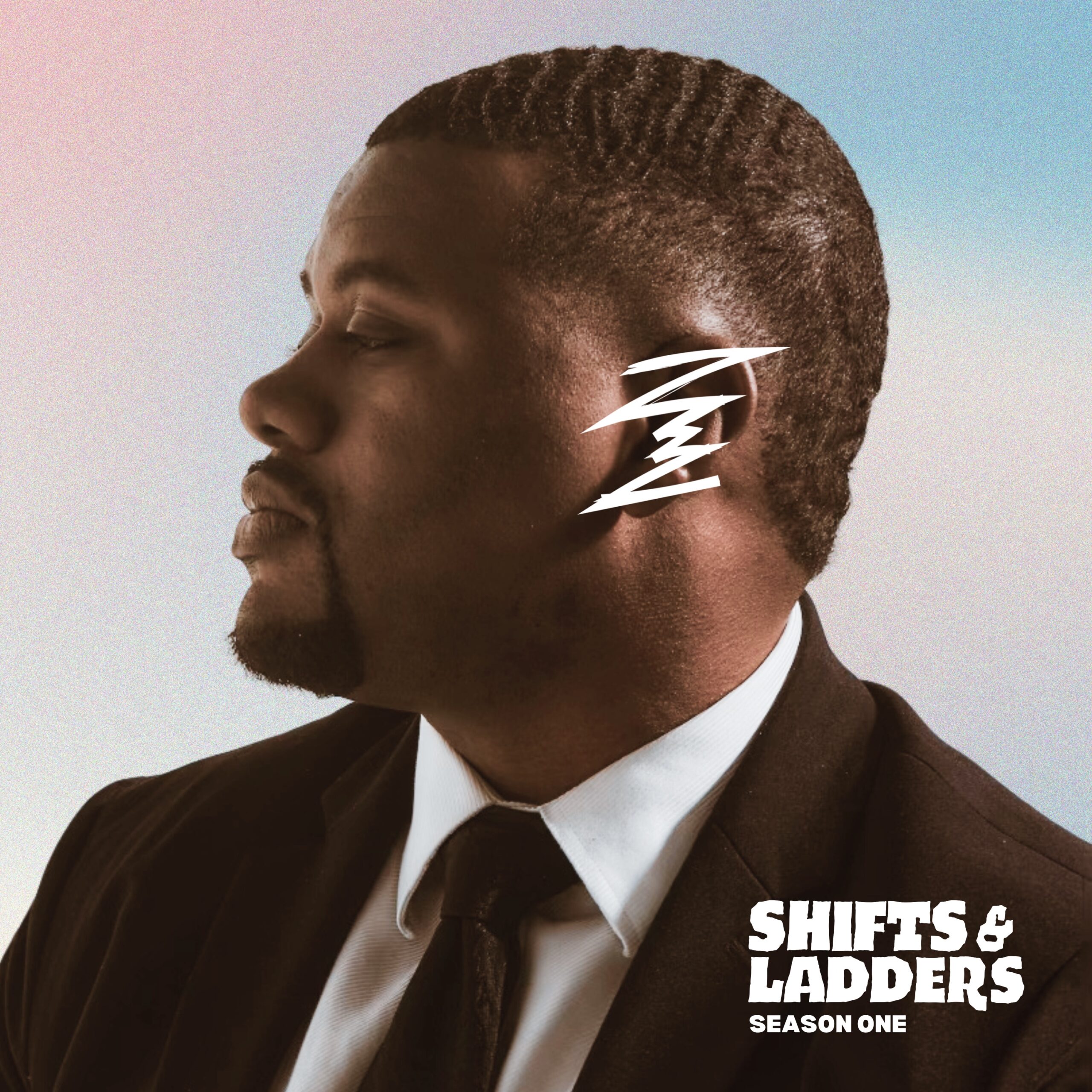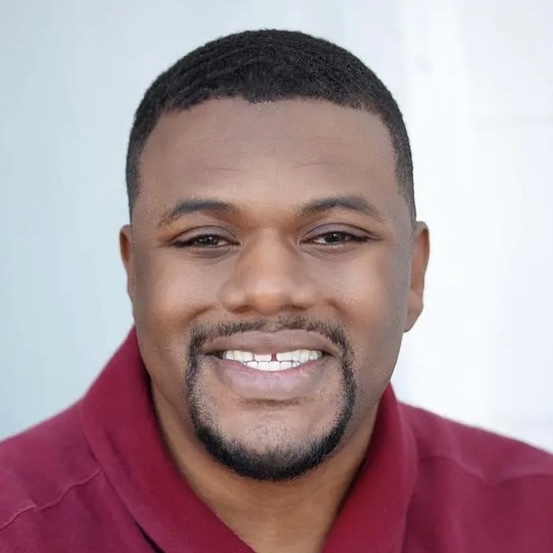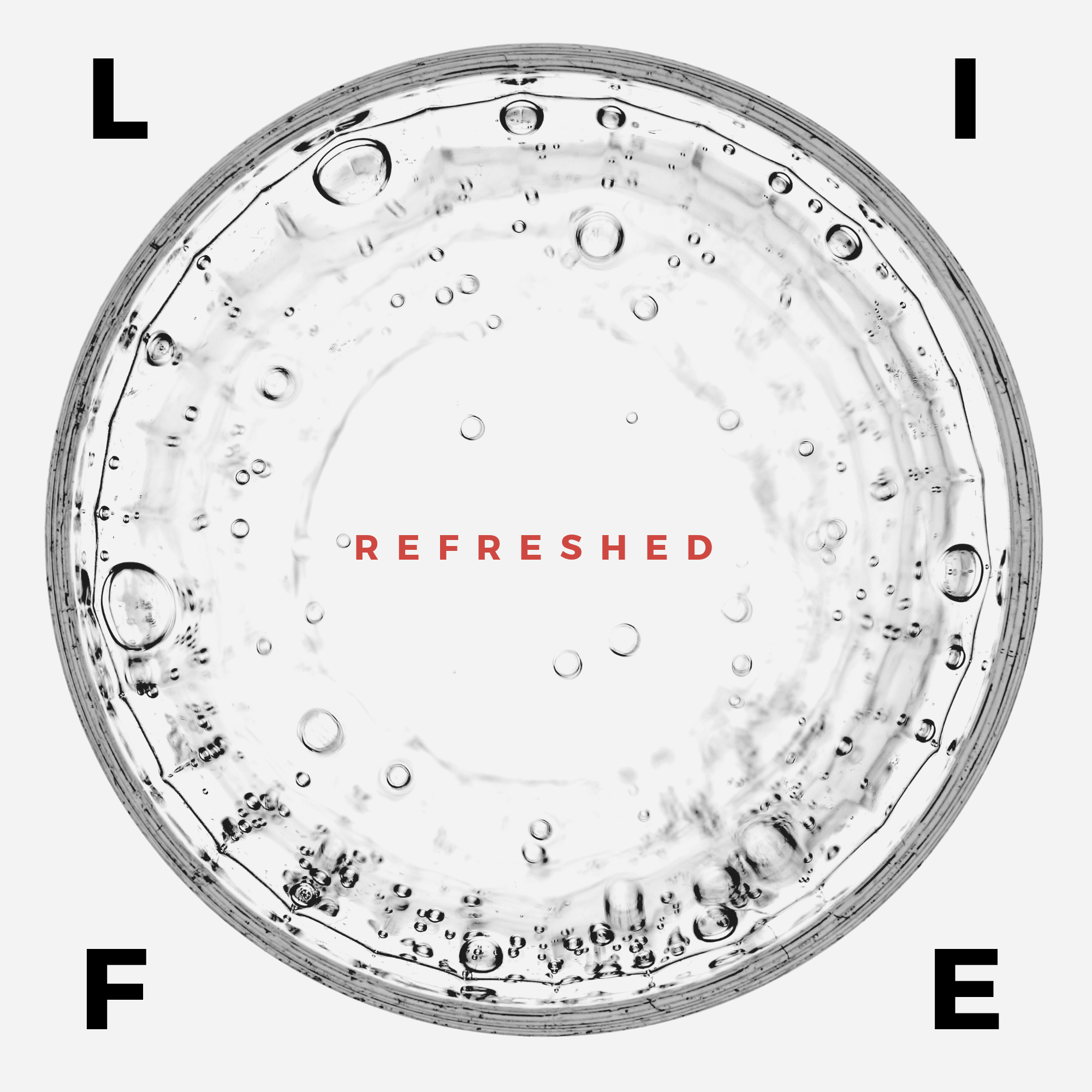Episode Transcript
Speaker 0 00:00:33 Hello and welcome to Life Refresh podcast. I am your host, Ryan Robinson. Um, thank you for tuning in. You've been tuning in for, uh, quite some time. And, uh, you know, if you haven't yet, uh, share this podcast with somebody, I think it'd really good to continue to, uh, let people know, uh, what this podcast is all about. Again, we're really working and focusing on a life refreshed, and what does that mean through these podcast episodes? We're gonna be working through that. Um, I'm, this is actually pretty new. We did a video, a podcast on, uh, with Dr. Mike Diamonds about a, a couple weeks ago, about a month or so ago. And, uh, this is, we're gonna start getting more consistent on, uh, video content on YouTube. So, you know, we'll have some interviews, we'll have some, uh, content, but you'll definitely be seeing me a little bit more often, uh, than not.
Speaker 0 00:01:27 So, um, I'm gonna jump right into it. We've been discussing that you are not your baggage, and that was in the last podcast that we talked about, and it was centering around First Samuel Chapter 10, uh, typically around the, the areas of, uh, verses 19 through 22. And essentially just getting a quick context of what we talked about. Um, that podcast or that episode was really talking about Saul King, Saul, who was Israel's first king. And, um, during that time, uh, the Israelites at the time did not, they wanted to be like every other nation. And because they were a theocracy, meaning they, God was their king, they did not have an earthly representation when it went, when they went to battle with other nations. So they wanted to have a king, someone physically there to be able to be a representation to them, to the nations.
Speaker 0 00:02:30 So God answers their prayer. He uses the prophet Samuel to select, uh, Saul, and through a number of, of, uh, affirmations or confirmations, if you will, um, Saul is selected and announced as king as the prophet Samuel gathers, uh, all the Israelites and all the 12 tribes of Israel to present to them their king. At that moment in time when Samuel announces Saul, Saul is nowhere to be found, and he's looking around for them, he said, where is, and the people are asking, where is, where's the king? And the Lord answered, he's hiding amongst the baggage, and then they pull him out of his baggage and essentially announce him as king. And everyone goes about their way. So this is the thing. Many of us have baggage <laugh>, whether we like to admit it or not, we have things, circumstances, challenges, um, experiences that have caused us to, uh, carry some baggage.
Speaker 0 00:03:36 It might be some unresolved hurt, it might be some traumatic experiences, it might be some self-esteem issues. Whatever it is, that baggage is something that sometimes we carry along with us unless we decide to actually leave it or decide to, um, give it up. One of the things I really want to drive home on this particular topic is around, um, why did the man hide in the baggage? Why did he hide? And one of the things about scripture that I'm always reminded is when, um, there's a, a law, and it's not necessarily a hermeneutical law, but it's something that most people refer to, and it's considered the law of first mentioned. And law of first mention says, depending on when this particular instance was found, you can find the origin of that meaning. So if it's a phrase or if it is, uh, for example, the spirit of the Lord fell, if you go into the first instance of what that looked like, you'll be able to, um, understand or at least get some context as to how that particular scripture is being used, or that event determines and actually details what that actually means.
Speaker 0 00:04:53 So when it comes up in other areas of scripture, you'll be able to refer back to when it was first mentioned. So, uh, the first time we hear of anyone hiding amongst anything is in the book of Genesis, a chapter three. And I'm gonna go ahead, I'm gonna pull it up real quick for us to talk about. But, uh, it is super important for us to really understand where it came from because at this point, um, and just to give you some clear context as to what was going on at that time, at this point, uh, Adam and Eve partake, uh, par had, uh, partaken with the, uh, from the fruit of the knowledge of good and evil. And the Bible says their eyes were open, uh, and because their eyes were open, they saw their own nakedness and decided to sow up, uh, fig leaves, uh, to cover up their nakedness.
Speaker 0 00:05:47 And, um, I'm gonna pull it up here. Gimme one second here is it is Genesis chapter three. And we'll be beginning, we'll just start at verse six. Um, 'cause I just talked about it. Um, the woman was convinced and she saw that the tree was beautiful, and it was, the fruit looked delicious. And I'm reading from the New Living Translation, by the way, the fruit looked delicious, and she wanted the wisdom it would give her. So she took some of the fruit and ate it, and then she gave some to her husband who was with her, and he ate it too. And at that moment, their eyes were open and they suddenly felt shame at their nakedness. So they sewed fig leaves together to cover themselves up. And the cool evening breezes were blowing the man and his wife heard the Lord God walking about the garden.
Speaker 0 00:06:39 So they hid themselves. Here we go. They hid from the Lord God among the trees. Then God called to the man, where are you? He replied, I heard you walking in the garden. So I hid, here it is. I was afraid because I was naked. And then the Lord says, who told you that you were naked? The Lord got asked, have you eaten from the tree whose fruit I commanded you not to eat? And then we can go into the whole dialogue of, uh, Adam blaming, it was this woman that you gave me that caused me to eat it, so on and so forth, right? So this is the first instance by which we find that an individual is hiding somewhere. And it was at that moment when their eyes were opened that they felt extreme shame about who they were and felt the need to cover up what they were ashamed of so that no one would see them.
Speaker 0 00:07:55 And I think that is one of the most challenging, if not most convicting things, is that the things that we are the most ashamed of, we typically will hide them from other people. It's challenging. I, I, I get it there. There's times where you have been, or let me just talk about, not you, I'm gonna talk about me. I'm just talk about me. Um, there's times where, you know, I've struggled with confidence or whatever, you know, those kind of things, and being able to feel like you're smart enough or you messed up and you're like, oh, I can't ever <laugh>, I can't ever recover from messing up. And you feel this amount of shame. And the thing is, there's a difference between guilt and shame. And guilt says, I did something wrong. Shame says, I am wrong. Something is wrong with me as a human being, there is something that is wrong with me.
Speaker 0 00:08:52 So what we will do is we will grab onto things. We will go to the things that I refer to. We'll go to money, cars, clothes, sex, relationships, whatever it is to cover up this deep, uh, black hole that we are ashamed of it, it, whatever it is, we will try to find a way to cover it up because we don't want anyone to see it. Now, this is the thing, y'all, the thing that covered Adam and Eve was also dying. So leaves, when they are connected to a tree, get the nutrients and necessary, uh, attributes to stay alive. But as soon as you pull that leaf from its branch, it starts to die wide because it's cut off from its life support. So it doesn't happen all at once, but it does happen gradually that the thing that Adam and Eve decided to cover themselves up with will slowly start to die, just like their souls were disconnected from relationship with God because of their disobedience and rebellion for eating from the fruit of the knowledge of good and evil. So that is the first time we hear about anyone hiding. There's other instances and places like in, uh, judges where Gideon is hiding in the threshing floor of a wine press, um, sorry, the the floor
Speaker 0 00:10:44 Gideon's hiding <laugh>. Where he's hiding is he's hiding from an enemy who is taking, who is going to take out the Israelites. And the, essentially the Lord allowed us to happen. But in this place, God calls him a mighty man, and he's like, God, I don't know who you're talking to, <laugh>, but I am not capable of becoming who you've called me to be. And, uh, I think those are some important aspects. Again, these, every time someone's hiding, they are keeping something about themselves hidden so that they can appear in control or, um, not be exposed and found out to be a phony. So we end up fast forward, back to saw and saw being found out in the baggage. Okay? So the thing is, what, why do we hide? I wanna get back to that question. Why do we hide? Now? This is the thing, it is not that we are, um, humble about hiding, right? It's like, ah, you know, guys, I'm, I'm, I, you know, some people will just hide in the background because they're like, well, I just don't wanna be in front of the, the, the camera, and I'm just trying to be humble and those kinds of things. And, and again, I, I recognize people are not necessarily trying to get the spotlight on whatever they're going through or whatever they've been gifted with. But it sounds like humility. But really at its core is actually pride.
Speaker 0 00:12:37 It's actually pride. I'm gonna say that again. You may think that it is being humble, but you're actually dealing with pride. Pride or ego. Okay? So what is the focus of pride is actually you, you are the focal point of pride. If it centers around how you feel about it, if you decide to, or if you make it about you, it's a pride issue. So, um, I'll give you an example, uh, of actually two different versions of pride, okay? The first one is very overt and very, uh, bolst. Um, you know, I think when most people think about ego, people think like Kanye West, right? Um, he has a, or pick your person, <laugh>. But a famous one that most people think about is Kanye. 'cause Kanye has this, uh, amazing, bigger than life personality, but he's also made it about Kanye. Um, he's made it about himself, right?
Speaker 0 00:13:52 And, um, you know, he even starred the song with Beyonce, right? That's called ego. Understood. He's the guy, right? He, he's that kind of person. So he will announce himself every time to bring attention to himself, even though he's been extremely gifted in what he's been gifted with, with music and creativity and all those things, he's able to articulate this greatness that he has. But he goes overboard. That's just me personally, but he knows he is good. So no one can doubt that, that he's good. But what they do have challenges of is like, you're that good, but you have to continue to remind everyone that you're that good. What are you compensating for, right? So that's one form. So that's one end of pride, okay? Now, there is another side of pride, and pride is the self-preservation mode of you. So say you're gifted to speak, teach whatever the case is, but because you are fearful or you want to protect yourself from the ridicule, the criticism that comes along with being a person that speaks out for oneself or speaks up for something, you are indeed being prideful because you are preserving yourself.
Speaker 0 00:15:26 You're not giving your gift out to the world, but you're keeping it for yourself because of an insecurity or whatever issue you have. Again, one me person's insecurity is bolser in pride, right? But sometimes pride can actually be, uh, covert and not overt. And we do these things because it, it sounds humble, it looks humble, but our culture only sees the, the boisterous big personality kind of pride. But in many cases, I would say probably most cases, the cases that which people are not going to step in and walk in what they know they're good in, but withdraw and keep that back and keep that, uh, behind a, uh, a fig leaf, if you will, your baggage, your trauma, whatever the case is, those are the excuses. Just like Adam gave to God as to why he was hiding. He said, I knew I was naked, so I hid myself from you.
Speaker 0 00:16:38 So the thing is, if it is an excuse that we are giving in order to keep ourselves from being seen, then you have some a pride issue you have to deal with. I'm speaking from something I know, okay? It is something I feel like many people, and again, we've learned this and been taught like it's good to not seek the spotlight, but this is the thing, if you're good, it's okay to say that you're good if you are a fantastic speaker. If you're an incredible writer, it's okay to say that you're good. It doesn't mean you need to continue to remind people like, I'm the greatest in the world. But if you trust and believe and know that you're good, that's fine. You can work in confidence, but you don't have to cower or don't have to continue to announce all the time, right? So you always walk in this level of comfortability. You're not ashamed of yourself, but you know that you are able, capable, and worth it, okay? So at this point, because Saul was found in the baggage, typically any issue of pride is rooted in the fact that we have not trusted God. I'm gonna say that again. The root of anything, I'm gonna say it again in a different way here, whoop, in a different way here.
Speaker 0 00:18:07 Any root of hiding or any expression of pride comes out because we are trusting in ourselves and not trusting in God. Okay? And this is, and again, this is in First Samuel chapter 10, right? Um, so we will get a glimpse again, every time we get a situation particularly like this, it's almost a foreshadowing of what is to come. But see, this is the thing, and I'll get to this point in a moment, but when you say you can't do something because you're too small, the task is too big for you, especially if it's something that you've been gifted to do. It's being afraid of what people are gonna say or think of you if you fail, or if you, even if you succeed and keeping that outcome to yourself and not putting yourself out there, that is a form of pride. But when we really trust God and are truly humble, because we see how big God is, we actually don't end up thinking about how good or bad we are.
Speaker 0 00:19:24 We only think about how good and big God is over my circumstance. Okay? So the, that is generally the issue because at some point we can on, we are a finite resource as individuals, as human beings. So we cannot rely on ourselves because we will fail. We will fail. And it is something that happens. Football has started, we are in football season, and I guarantee you there are people who, and young guys have been playing right now that have missed a play. And many of us don't even know that they missed a play. Um, but honestly, they decided in this and said that they're still gonna line up and play because they recognize that that one play is not an indication that they're not good. It's just a circumstance by which they just have an opportunity to recover from. It's not the game that one play didn't decide the game, and in some cases it does, but that one play does not disqualify you. Therefore, these guys line up again, they try their best again. They do what they need to do to rise to the occasion again. But if they were prideful of themselves, say, oh, I messed up, I'm gonna sit myself down. And that doesn't work, <laugh>, that doesn't work with at least the coaches I've worked with in the past. So, um, I, I want to kind of bring back this foreshadowing a little bit as I come to a close here.
Speaker 0 00:21:06 And, um, first Samuel chapter 15, um, we find ourselves in a situation where Saul has been, uh, continuously, uh, fighting, uh, the Philistines and the, uh, in this particular situation, the Amalekites and, um, the, the, um, the thing is sa at this point slaughters the Amalekites, and he's told not to, uh, take anything, basically told to destroy everything, okay? Um, but in, I'm gonna start at verse, uh, lemme see. I'm gonna start at verse seven. So first Samuel chapter 15, verse seven, then sa then Saul slaughtered the Amalekites from Hava all the way to shore east of Egypt. He captured a g the amalekite king, but completely destroyed everyone else. Saul and his men spared AGA's life and kept the best of the sheep and goats, the cattle, the fat calves, and the lambs, everything, in fact, that appealed to them. They destroyed only what was worthless or of pure of poor quality.
Speaker 0 00:22:28 Now, in verse chapter, uh, or sorry, the same chapter, verse three, uh, Samuel says to Saul that they need to completely destroy everything the entire nation. Men, women, children, babies, cattle, sheep goes, camels, donkeys, period. <laugh>, it is like God's not playing. He says, I need you to follow the instructions in work in obedience. Okay? But just what I clearly said, there was some baggage. There was something that Saul felt that this looked too good to me, that I couldn't trust God for that. So he took, took matters into his own hands. And then this is the thing, verse 10 says, then the Lord said to Samuel as soon as it happened, he says, I am sorry that I ever made Saul King for he has not been loyal to me and has refused to obey my command. Samuel was so deeply moved when he heard this, that he cried out to the Lord all night.
Speaker 0 00:23:42 This is the thing, ladies and gentlemen, our baggage, if it's not dealt with, will deal with us chapters, years, months later. And it's important for us to deal with the baggage. Now, you're not your baggage, but you still need deal with it. You still need to unpack it. You still need to drop it off. You still need to let it go. Saul allows Saul's example of first being hidden in baggage once he's announced as king. And then when things are looking good and he thinks that he's, he knows a little bit better than God does. The same pride that kept him from walking when he's first announced, as king pops up when he decides to disobey because he wanted to keep the best of what he took. Now, this is a thing though. Saul is the king of Israel. He could have gotten anything he wanted, but he didn't trust God enough. So I'm asking you today, maybe you haven't trusted God enough. What's keeping you, I'm asking myself the same question. What is keeping you, what is keeping me from trusting God full and wholeheartedly? Is it that we are scared of what we might become? Is it that we are afraid of the ridicule, the criticism that comes when we fully realize our potential and what God really deposited in us?
Speaker 0 00:25:34 Or is it the shame of a past issue, a past decision, something that we're not comfortable about in ourselves? I'm gonna kind of close here, but what I wanna do is I'll talk in the next podcast, but um, I want to revisit, um, not just the baggage, but who the carrier is of the baggage and maybe evaluate the process that we all go through to figure out are we enough? So, tune into this podcast. This is my first, my first solo video podcast. Um, love to hear a comment, love to hear from you. Um, but with that being said, take care and we'll see you in the next one. Peace.




